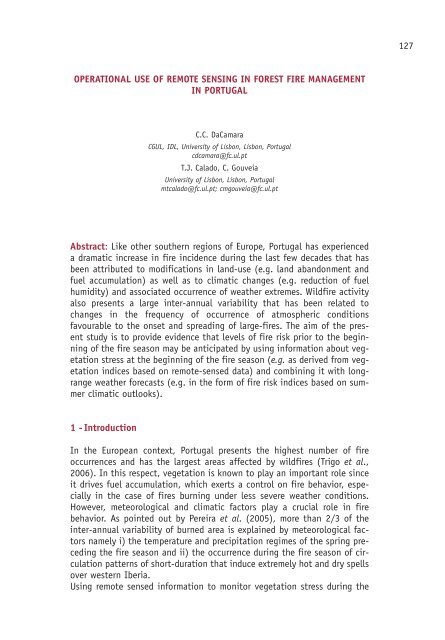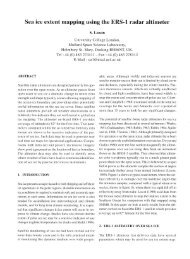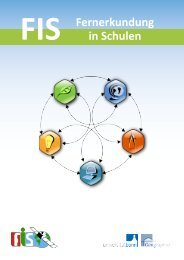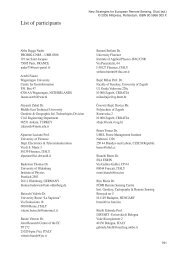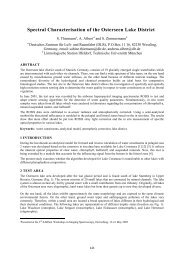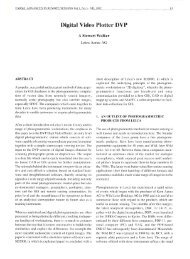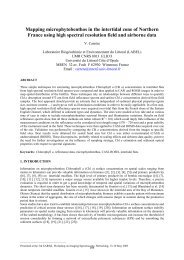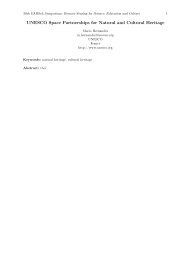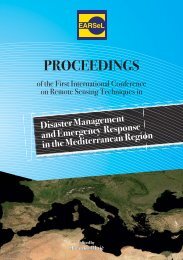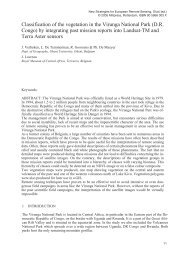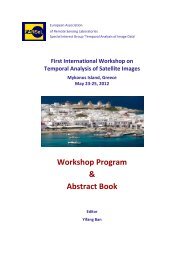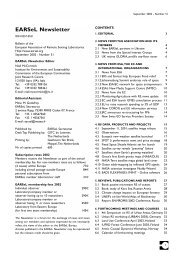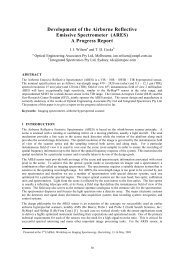7th Workshop on Forest Fire Management - EARSeL, European ...
7th Workshop on Forest Fire Management - EARSeL, European ...
7th Workshop on Forest Fire Management - EARSeL, European ...
Create successful ePaper yourself
Turn your PDF publications into a flip-book with our unique Google optimized e-Paper software.
OPERATIONAL USE OF REMOTE SENSING IN FOREST FIRE MANAGEMENT<br />
IN PORTUGAL<br />
Abstract: Like other southern regi<strong>on</strong>s of Europe, Portugal has experienced<br />
a dramatic increase in fire incidence during the last few decades that has<br />
been attributed to modificati<strong>on</strong>s in land-use (e.g. land aband<strong>on</strong>ment and<br />
fuel accumulati<strong>on</strong>) as well as to climatic changes (e.g. reducti<strong>on</strong> of fuel<br />
humidity) and associated occurrence of weather extremes. Wildfire activity<br />
also presents a large inter-annual variability that has been related to<br />
changes in the frequency of occurrence of atmospheric c<strong>on</strong>diti<strong>on</strong>s<br />
favourable to the <strong>on</strong>set and spreading of large-fires. The aim of the present<br />
study is to provide evidence that levels of fire risk prior to the beginning<br />
of the fire seas<strong>on</strong> may be anticipated by using informati<strong>on</strong> about vegetati<strong>on</strong><br />
stress at the beginning of the fire seas<strong>on</strong> (e.g. as derived from vegetati<strong>on</strong><br />
indices based <strong>on</strong> remote-sensed data) and combining it with l<strong>on</strong>grange<br />
weather forecasts (e.g. in the form of fire risk indices based <strong>on</strong> summer<br />
climatic outlooks).<br />
1 - Introducti<strong>on</strong><br />
C.C. DaCamara<br />
CGUL, IDL, University of Lisb<strong>on</strong>, Lisb<strong>on</strong>, Portugal<br />
cdcamara@fc.ul.pt<br />
T.J. Calado, C. Gouveia<br />
University of Lisb<strong>on</strong>, Lisb<strong>on</strong>, Portugal<br />
mtcalado@fc.ul.pt; cmgouveia@fc.ul.pt<br />
In the <strong>European</strong> c<strong>on</strong>text, Portugal presents the highest number of fire<br />
occurrences and has the largest areas affected by wildfires (Trigo et al.,<br />
2006). In this respect, vegetati<strong>on</strong> is known to play an important role since<br />
it drives fuel accumulati<strong>on</strong>, which exerts a c<strong>on</strong>trol <strong>on</strong> fire behavior, especially<br />
in the case of fires burning under less severe weather c<strong>on</strong>diti<strong>on</strong>s.<br />
However, meteorological and climatic factors play a crucial role in fire<br />
behavior. As pointed out by Pereira et al. (2005), more than 2/3 of the<br />
inter-annual variability of burned area is explained by meteorological factors<br />
namely i) the temperature and precipitati<strong>on</strong> regimes of the spring preceding<br />
the fire seas<strong>on</strong> and ii) the occurrence during the fire seas<strong>on</strong> of circulati<strong>on</strong><br />
patterns of short-durati<strong>on</strong> that induce extremely hot and dry spells<br />
over western Iberia.<br />
Using remote sensed informati<strong>on</strong> to m<strong>on</strong>itor vegetati<strong>on</strong> stress during the<br />
127


